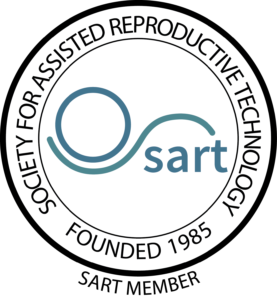Learn more about egg donor recipient screening
To help ensure patients can welcome a baby using donor eggs, our Tennessee fertility doctors recommend egg donor recipient screening. For a female patient not using a gestational surrogate, this screening confirms that she does not have any health concerns that could affect her ability to carry a pregnancy. Male patients receive a screening that helps determine whether their sperm has a good chance of fertilizing the donor eggs.
Egg donor recipient screening for female patients
When a woman decides to use an egg donor, she will first have a consult with one of our doctors to discuss egg donation and review medical records. The doctor will also order certain tests for the female patient.
- Physical exam. Fertility specialists typically recommend women 40 and over receive a physical exam from their primary care provider to confirm their overall health.
- Bloodwork. We test the recipient’s blood for blood type, rubella, hepatitis, HIV, chlamydia and other conditions.
- Ultrasound. An ultrasound helps the doctor determine whether a woman has any uterine abnormalities that could hinder a pregnancy, including polyps, adhesions or fibroids.
- Hysterosalpingogram, or HSG. The doctor can also use this fertility evaluation to detect possible uterine abnormalities.
- Sonohysterogram, or SHG. Like the HSG test, a sonohysterogram is a method of observing potential abnormalities in a woman’s uterus.
After this egg donor recipient screening, our Tennessee fertility doctors thoroughly explain the results to the patient and help her determine the next steps.
Male fertility evaluation
Before a man contributes the sperm that will fertilize the donor eggs, we have him undergo a series of tests. These tests provide invaluable information about his overall reproductive and genetic health.
- Semen analysis. This test allows the fertility specialist to determine the quantity, quality and movement of the man’s sperm. In some situations, the doctor also recommends a semen culture to determine whether the man has a bacterial infection.
- Antisperm antibody testing. This evaluation can reveal proteins that could be damaging or killing sperm.
- Blood tests. The man will undergo the same blood tests that his female partner did to identify whether he has any infectious illnesses.
- Preconception genetic screening. If genetic tests show that a man carries any inheritable genetic conditions, we can ensure that the egg donor is not also a carrier.
These tests can help ensure that the patients have the best chance of having a healthy pregnancy after an egg donation cycle.
What happens after the screening?
If egg donor recipient screening reveals no issues, an IVF nurse coordinator will work with the patients to find the ideal egg donor. If testing reveals potential health issues, our Tennessee fertility doctors will help the patients find solutions and take the next step toward parenthood. Contact us for more information about egg donation.







